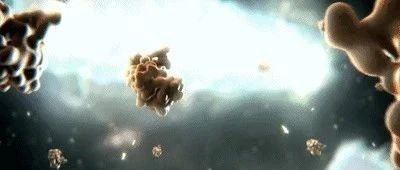艾滋病毒携带者接种失活的艾滋病毒后,能够带来对有活性病毒的抑制效果。一项新的研究表明,对一些艾滋病患者注射热失活的HIV后可以唤醒他们的免疫保护,减少他们对药物的需求,效果长达数周至几个月。尽管这种效果是暂时性的,但只这种方法也许可以为长期控制HIV带来新的思路。
在抵御HIV时,人的免疫系统显得力不从心,主要原因是艾滋病毒的攻击目标就是协助抵御病毒的T细胞。利用疫苗来“警告”已感染HIV的患者体内的T细胞及其他免疫力量会产生复杂的结果。
在这项发表在2号Science Translational Medicine杂志上的研究中,科学家报告了一种新的方法,可以大幅降低体内病毒的水平。利用来自36位艾滋病人的血样,研究人员提取了每人血液中的HIV,并对树突状细胞进行了取样。研究人员随机选取其中22位患者,为他们接种自身的树突状细胞和热失活的HIV。12周以后,22位患者中有12位的病毒水平降低了至少90%。
领导这项研究的Felipe Garcia解释说,这一结果表明携带失活病毒的树突状细胞可以向活病毒发起猛烈的免疫攻击。而其他作为对照组的患者接种的是未失活的HIV及树突状细胞,在他们身上几乎没有什么效果。
在接受这种治疗的患者中,他们新获得的针对HIV的免疫能力随时间而减弱,体内病毒水平会上升。48个星期后,只有3人还保持着90%的病毒水平下降的效果。
研究者表示新研究中降低病毒水平的方法非常具有前景。研究团队目前正在尝试寻找能够引发最佳免疫反应的病毒颗粒。
专家表示,尽管治疗性疫苗达不到完全清除体内病毒的目标,但是只要具有长效性,那么仍然是有益的。大幅降低患者体内的病毒水平意味着患者可以不再需要药物,不会表现出病症,也不会将病毒传染给他人。这在被称为“精英控制者(elite controller)”身上是由先例的。这类占人口比重不到1%的人群即便感染HIV数年,他们的免疫系统仍然可以抑制住病毒。

 A Dendritic Cell–Based Vaccine Elicits T Cell Responses Associated with Control of HIV-1 Replication
A Dendritic Cell–Based Vaccine Elicits T Cell Responses Associated with Control of HIV-1 Replication
Felipe García et al.
Combination antiretroviral therapy (cART) greatly improves survival and quality of life of HIV-1–infected patients; however, cART must be continued indefinitely to prevent viral rebound and associated disease progression. Inducing HIV-1–specific immune responses with a therapeutic immunization has been proposed to control viral replication after discontinuation of cART as an alternative to “cART for life.” We report safety, tolerability, and immunogenicity results associated with a control of viral replication for a therapeutic vaccine using autologous monocyte-derived dendritic cells (MD-DCs) pulsed with autologous heat-inactivated whole HIV. Patients on cART with CD4+ >450 cells/mm3 were randomized to receive three immunizations with MD-DCs or with nonpulsed MD-DCs. Vaccination was feasible, safe, and well tolerated and shifted the virus/host balance. At weeks 12 and 24 after cART interruption, a decrease of plasma viral load setpoint ≥1 log was observed in 12 of 22 (55%) versus 1 of 11 (9%) and in 7 of 20 (35%) versus 0 of 10 (0%) patients in the DC–HIV-1 and DC-control groups, respectively. This significant decrease in plasma viral load observed in immunized recipients was associated with a consistent increase in HIV-1–specific T cell responses. These data suggest that HIV-1–specific immune responses elicited by therapeutic DC vaccines could significantly change plasma viral load setpoint after cART interruption in chronic HIV-1–infected patients treated in early stages. This proof of concept supports further investigation of new candidates and/or new optimized strategies of vaccination with the final objective of obtaining a functional cure as an alternative to cART for life.
文献链接:A Dendritic Cell–Based Vaccine Elicits T Cell Responses Associated with Control of HIV-1 Replication








